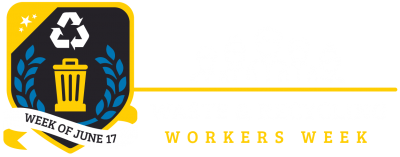
Mayor Bill de Blasio is pursuing the laudable goal of trying to reduce the burdens of commercial waste in certain highly affected neighborhoods, but is doing so by adopting unsophisticated waste-management policies that will have far more negative consequences than benefits.
Moving the city to a franchised system – a competitive bidding process to select a small group of haulers to pick up the city’s commercial waste – does little to help the environment, and will in fact create a lot of collateral damage, especially to existing private waste businesses owned and operated by New Yorkers, and their employees.
RELATED: De Blasio commissioners tout sustainability successes
This year, the mayor’s administration designated $8 million of taxpayer money to hire an outside consultant to recommend how to put a meat cleaver to the commercial waste system. The city’s own private carting study released last August conceded that franchising will eliminate jobs and end a local company’s ability to retain or discontinue the services of the hauling business of their choice. Actual job losses will be dramatically greater than those referenced in the report because the study fails to consider how franchising affects small and medium sized carting businesses, which will be among the main victims of franchising. National waste industry chains have proven to be the only beneficiaries and they have consistently raised collection costs for local businesses. We can do better than just looking to cave to political expediency. We need to do better for long term sustainability and growth.
The city should protect the livelihoods of the workers in this industry who, by and large, are in unionized workforces. While working in dangerous jobs these employees are making a living that pays in many instances two to three times more than the city’s minimum wage. A recent survey of 24 companies, which represent 1300 employees, found that 68 percent of the industry is Hispanic and 29 percent is black. Many of these workers have experienced barriers to employment due to a lack of a high school education or because of significant contact with the criminal justice system – the very demographic of people that de Blasio has campaigned to help find better employment opportunities.
Regulated competition in the commercial waste industry has been beneficial to small businesses in the city and generally enabled job growth, even if regulation of these markets could be improved to better reward good environmental actors and penalize companies that provide dangerous or low-end work conditions to their employees. The Business Integrity Commission (BIC) can take measures to adopt smarter regulatory standards, while preserving a competitive commercial waste market. We can further meet well-founded environmental and traffic goals without threatening good jobs that took decades to bargain. For example, BIC could encourage more efficient and safer collection while maintaining customer choice by allowing sub-contracting between companies, extending the allowable term of contracts and adding safety and good employment conditions into the licensing standards.
RELATED: Brooklyn sanitation chief’s attitude reflects de Blasio leadership
Although the mayor’s interest group allies have consistently heaped criticism on the industry over safety, nothing in the current book of mayoral policy proposals does anything meaningful to address that. Although there are dramatically fewer accidents in the private commercial waste sector compared to the Department of Sanitation, it is imperative that industry adopt and accept mandatory safety trainings and enforcement by the city. Therefore, BIC should establish regulations that create standardized safety certifications for industry employees and require that each company annually conduct a minimum of 40 hours of safety trainings for its employees. The safety training certified by BIC should be transferable to any company within the five boroughs.
We do not believe that the only way to protect the environment is through rules that adversely affect working people. The administration’s stated goal of creating 100,000 jobs to address income inequality won’t come close to happening without smart policies that tackle the environmental concerns properly in order to preserve and create good jobs. The carting industry knows that it must change and it is doing so by becoming more effective, efficient and adopting new technologies. But those efforts will slow down, and ultimately cease, if the city continues to proceed in a way that leaves the current operators and their workers without a future in this market. We encourage the city to do better than implement plans that blindly carve up the industry into franchised fiefdoms which will only send us back to the bad old days of garbage cartels that stifle competition, raise rates, kill jobs and ultimately close businesses without any actual benefits to the community or environment. Laudable goals must be bound by practical application.
Michael Hellstrom is the business manager for Local Laborers 108.
SOURCE: http://cityandstateny.com/articles/opinion/consolidating-new-york-city-waste-industry-is-bad-for-workers-and-the-environment.html
